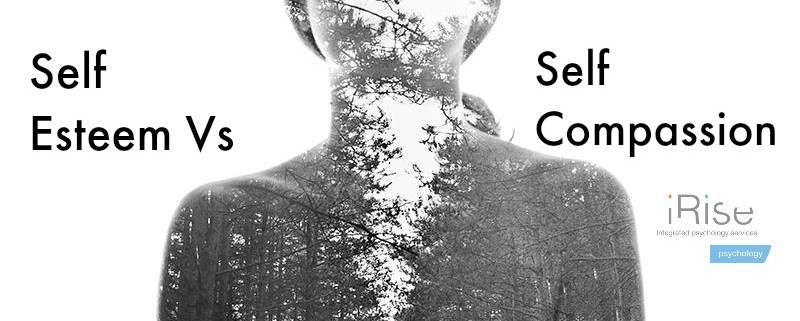Self Esteem Vs Self Compassion
The pursuit of self esteem is perhaps one of the biggest movements of the last 50 years. From teachers to parents and popular culture, we have been taught that feeling good about yourself is a high priority. A huge self help industry has been built around the benefits of increasing self esteem. The self esteem movement bases its assumptions on the belief that high self esteem leads to positive outcomes, and low self esteem leads people to do things that are harmful and destructive. However recent research has laid bare the negative aspects of self esteem. It has led to us becoming more and more competitive, as our self worth is calculated by how better we are doing in relation to others.
Our culture has become so competitive we need to feel special and above average to just to feel okay about ourselves (being called “average” is an insult). Most people, therefore, feel compelled to create what psychologists call a “self-enhancement bias” – puffing ourselves up and putting others down so that we can feel superior in comparison.
Dr Kristen Neff
This constant need to feel better than those around us leads to a sense of isolation and separation. In addition our self esteem is dictated by our latest success or failure. However perhaps the most insidious consequence of the self esteem movement is the narcissism epidemic. Self-esteem has also been linked to aggression, prejudice and anger towards those who threaten our sense of self-worth. It’s the reason some people bully or put others down to build themselves up.
Self Esteem Vs Self Compassion
In contrast to self-esteem, self-compassion is not based on self-evaluations. People feel compassion for themselves because we all deserve compassion and understanding, not because they possess a trait or traits that are desirable. This means that with self-compassion, you are not dependent on feeling better than others to feel good about yourself. Self-compassion also allows for greater self-clarity, because personal failings can be acknowledged with kindness and do not need to be hidden.It also involves mindfulness — the recognition and non-judgmental acceptance of painful emotions as they arise in the present moment.
Download our Mini Mindfulness Guide!
Learn how Mindfulness can Improve your day to day life
Moreover, self-compassion isn’t dependent on external circumstances, it’s always available – especially when you fall flat on your face! Research indicates that in comparison to self-esteem, self-compassion is associated with greater emotional resilience, more accurate self-concepts, more caring relationship behavior, as well as less narcissism and reactive anger.
Although low self esteem is not something we want to suffer, and we always work at increasing our clients sense of self worth, our adoption of the self compassion approach has greatly improved client outcomes. We owe much of this to the hard work our clients put into their therapy, but also the fantastic work done by Dr Kristen Neff. We really recommend this TED Talk about self compassion which we have featured in our blog post on the psychological aspects of weight loss.
Also take a look at our self esteem booster guide which you can access below.
Access the Self-Esteem Booster Guide
Learn about the 10 Tips to Increase Self-Esteem




Leave a Reply
Want to join the discussion?Feel free to contribute!